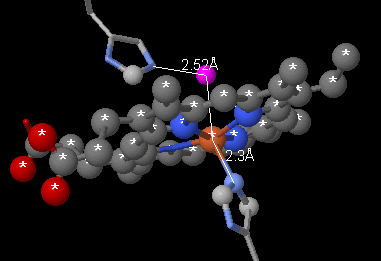

I just clicked on "Load MOL by NAME" and then asked the students to give me a name of something they knew, like a medication.

This page has a button on the right that uses the prompt command and taps into the NIH CACTUS service using load $ chemicalName (Jmol 12.1). I thought it would be fun to get students to suggest examples, so I fired up On day 5 of first-semester organic chemistry (textbook Smith, 3 rd ed., Chapter 3, topic "Functional Groups"). Proteopedia is widely used by educators.įunctional Groups: getting structures by name
Teaching Strategies Using Proteopedia. While reading about the molecule, you click green links that change the interactive 3D molecular scene in JSmol. Proteopedia.Org is a JSmol-based protein structure wiki that makes it easy to create customized molecular scenes. Lesson plans with syllabi and assessments for students at various levels, using FirstGlance: Introduction to Structural Bioinformatics. To find it, google firstglance as a single word, no space. Suitable for high school up to investigators in biochemical research teams. You don't need to learn any Jmol commands. Find the non-covalent interactions with any moiety. Find any residue or sequence motif in the 3D structure. Secondary structure, hydrophobic cores, charge distribution, "local uncertainty" (B factor/temperature factor) are available at a single click. "Better than average at this resolution") with explanations in minimally-technical language. Technical language is minimized for example, "Reliability" offers an objective assessment of free-R (e. Information in the PDB file header is presented in readable form with links to extensive help. #Firstglance jmol code#
FirstGlance in Jmol offers a guided tour of any macromolecule (PDB code or uploaded model).4 Integrating Jmol in virtual learning environments.3 Functional Groups: getting structures by name.






 0 kommentar(er)
0 kommentar(er)
